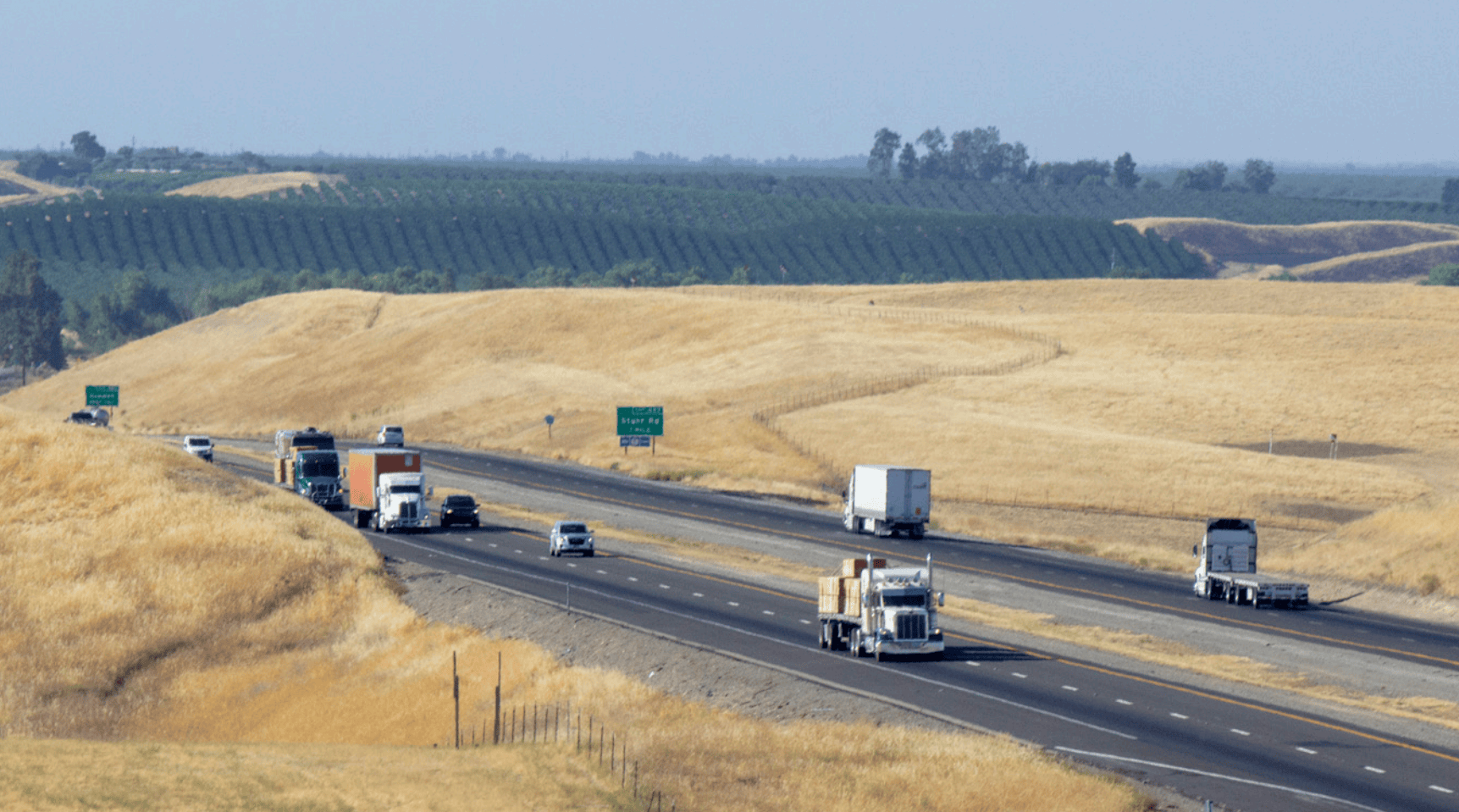
STATEWIDE – The California rule banning big rig trucks and large buses made prior to 2010, went into effect January 1. The law is an effort to reduce toxic air contaminants (TACs) emissions from exhaust.
The California Air Resources Board (CARB) rule applies to diesel vehicles that weigh at least 14,000 pounds.
According to CARB’s annual enforcement report, more than 85 percent of all affected vehicles have already been upgraded to 2010 model year or newer engines.
“The remaining number of vehicles facing a January 1, 2023, compliance deadline (2007 through 2009 model year engines) is estimated to be about 36,900 California registered trucks and up to 192,400 trucks registered in other states,” states a CARB memo dated May 20, 2022.
To enforce the rule, the California Department of Motor Vehicles (DMV) will only register vehicles compliant with the regulation.
This phasing out of diesel vehicles is part of California’s plan to have a zero-emissions requirement for big rigs and buses.
Under the plan, manufacturers won’t be able to sell new medium-duty and heavy-duty trucks fueled by diesel or gasoline that operate in California after 2040. Only electric models will be sold.
Although industry leaders believe the new rules are “aspirational” they say there’s challenges for vehicle owners to become compliant with the now passed deadline.
Truck availability is one of the main concerns.
CARB says staff conducted research on the current availability of new and used diesel vehicles with 2010 model year or newer engines that meet the regulation’s final requirement.
“For new trucks, staff contacted several dealers and confirmed that most have stopped taking orders for the 2022 model year, but several dealers are either already taking orders for the 2023 model year or will be taking orders soon. Under the regulation, truck owners that place orders for a new truck by September 1, will be able to keep using their existing trucks past the January 1, deadline until the replacement truck is delivered,” states the CARB memo dated May 20, 2022.
RELATED: BNSF $1.5B facility will bring ‘thousands of jobs to Barstow’
Truck owners can also purchase used trucks with 2010 engines to comply with the regulation.
Another challenge for vehicle owners is the cost to purchase a compliant truck.
CARB says they have provided several incentive programs to help affected vehicle owners replace older vehicles with “newer, cleaner vehicles.” These programs include:
Hybrid and Zero-Emission Truck and Bus Voucher Incentive Project (HVIP)
HVIP provides funding opportunities for fleet owners to help lower the purchase price of zero or advanced technology vehicles. Since inception, HVIP has awarded over $600 million to support the purchase of over 9,200 cleaner heavy-duty vehicles.
Funding Agricultural Replacement Measures for Emission Reductions (FARMER) Program
The FARMER Program provides funding for agricultural vehicle and equipment replacement projects to reduce agricultural sector emissions. As of September 2021, the FARMER Program invested $23.8 million to replace 275 heavy-duty agricultural trucks with 2010 model year or cleaner engines.
Carl Moyer Memorial Air Quality Standards Attainment Program (Carl Moyer Program)
The Carl Moyer Program provides grant funding for cleaner-than-required engines, equipment, and other sources of air pollution. As of 2020, the Carl Moyer Program has executed nearly $95 million to fund over 2,500 compliant vehicles in support of the regulation.
Volkswagen Environmental Mitigation Trust (VW Trust)
The VW Trust provides funding opportunities for specified eligible actions for the heavy-duty sector, including on-road freight trucks regulated under the regulation. As of 2022, the VW Trust has funded 227 vehicles, adding up to over $58 million awarded.
Truck Loan Assistance Program
The Truck Loan Assistance Program helps small-business fleet owners affected by the regulation to secure financing for upgrading their fleets with newer trucks. As of April 2022, more than $200 million in contributions has been leveraged into over $2.5 billion in financing for the purchase of nearly 38,000 compliant vehicles.
The regulation also includes two limited compliance options that allows pre-2010 vehicles to be used beyond the final January 1, 2023, deadline.
Vehicles that travel less than 1,000 miles per year in California and meet reporting requirements may continue to operate indefinitely under the low-use vehicle exemption.
In addition, vehicles that operate exclusively in areas defined under the regulation as NOx exempt areas and meet filter, labeling and reporting requirements may continue operating those vehicles beyond 2023.
For more information on the CARB Truck and Bus Regulation visit https://ww2.arb.ca.gov/our-work/programs/truck-and-bus-regulation